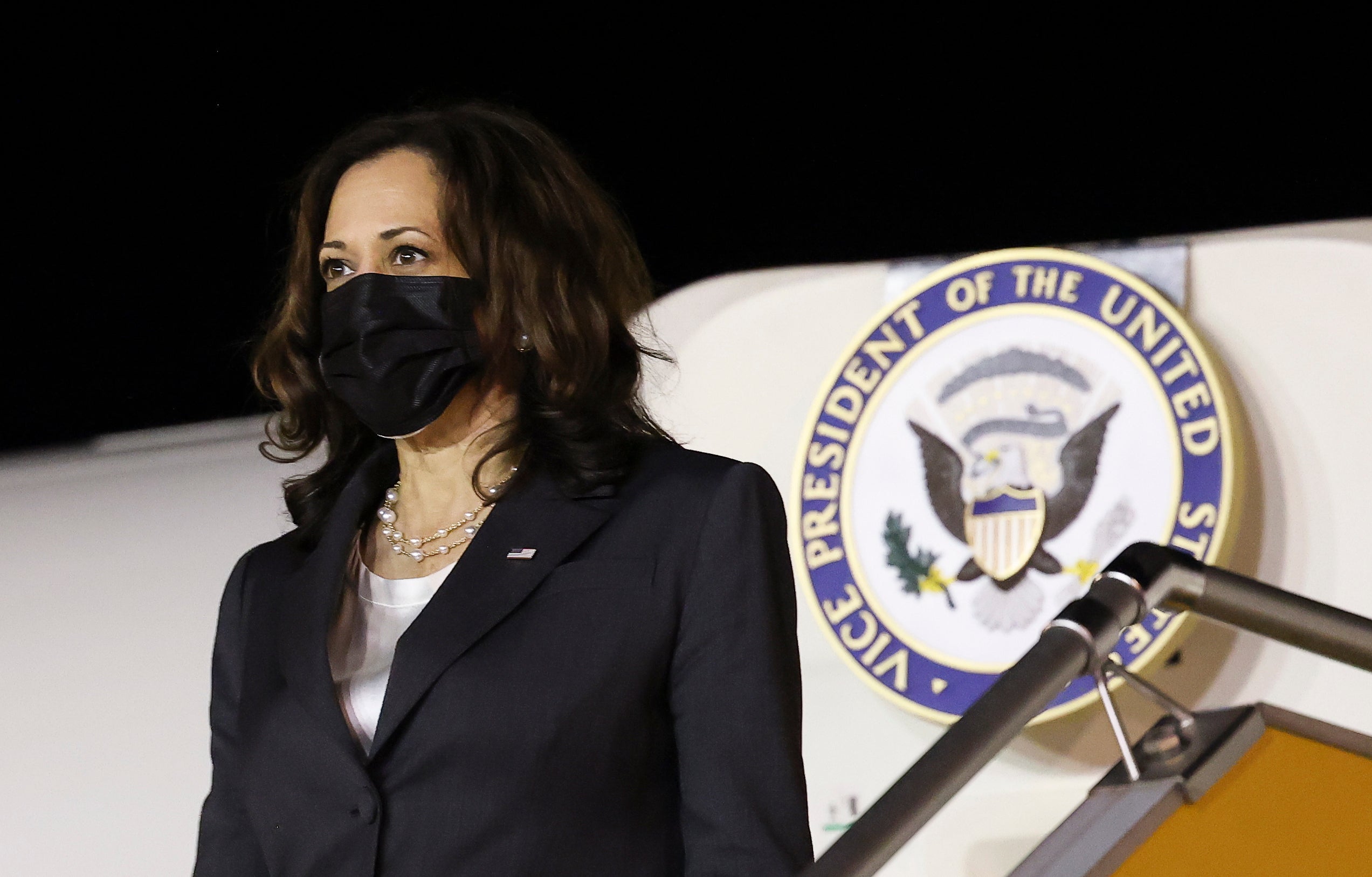Harris shifts focus to pandemic response in hard-hit Vietnam
U.S. Vice President Kamala Harris is turning her focus to the coronavirus pandemic during her visit to Vietnam, a country grappling with a worsening surge in the virus and stubbornly low vaccination rates

Vice President Kamala Harris turns her focus to the coronavirus pandemic and global health during her visit to Vietnam, a country grappling with a worsening surge in the virus and stubbornly low vaccination rates.
The more infectious delta variant is driving record highs in infections in Vietnam and prompted a recent lockdown in Ho Chi Minh City the nation’s business hub and the epicenter of the latest outbreak.
Harris is expected to offer further U.S. support to help the nation expand its vaccination rate, which hovers around 2%, during meetings Wednesday morning with Vietnamese officials. She’ll also emphasize the opportunity for greater collaboration to address climate change and discuss an increase in U.S. security support to Vietnam, which shares Washington’s wariness of China
In the afternoon, Harris will join a health security event with the health ministers from the Association of Southeast Asian Nations group and Papua New Guinea, and will launch the Centers for Disease Control and Prevention Southeast Asia regional office. The new CDC office will be one of four regional offices globally, and it’s focused on collaborating with regional governments on research and training to deal with and prevent global health crises.
Harris is the first U.S. vice president to visit Vietnam, and her trip comes during a weeklong swing through Southeast Asia.
Harris's first stop was in Singapore where she met with top officials and delivered a speech outlining President Joe Biden s vision for the region. The Indo-Pacific nations have become a central focus for the Biden administration as it seeks to offer a counter to China’s growing influence globally.
But even as Harris hopes to keep her focus squarely on those key agenda items in Vietnam, her visit will be shadowed by a recent security scare in Vietnam and the ongoing developments in the U.S. exit from Afghanistan.
Harris’ flight to Vietnam was delayed for hours Tuesday afternoon after the vice president’s office was made aware of an investigation into two possible cases of the so-called Havana Syndrome in Hanoi, according to administration officials. The Havana Syndrome is the name for a rash of mysterious health incidents first reported by American diplomats and other government employees in the Cuban capital beginning in 2016.
Harris has yet to comment publicly on the developments, but they’ll weigh heavily on officials while she participates in a lease signing for the U.S. Embassy in Hanoi, with embassy staff attending.
And her swing through Vietnam is certain to draw some unwanted comparisons between the humiliating withdrawal of U.S. troops in 1975 and the tumultuous effort this week to evacuate Americans and allies from Afghanistan.
U.S. Sen. Bill Hagerty, a Tennessee Republican and a former U.S. ambassador to Japan, noted that those images are unavoidable for many Americans as Harris stops in the country.
“She’s going to have a challenge from a domestic public relations standpoint, because everyone in America right now is associating the images that they’re seeing on TV with the collapse of Kabul, with the images of Americans being lifted from the rooftop of our embassy in Saigon,” he said.
Hagerty also said that Harris will need to reassure the Vietnamese that America remains a “beacon of liberty and freedom in the world” and a “strong partner” in the region.
But Gregory Poling, a senior fellow for Asia at the Center for Strategic and International Studies, suggested that Vietnam could offer the vice president an opportunity to offer a more optimistic vision for what a relationship with a former foe can become.
“Simply by being there and engaging in this process, it shows the remarkable progress in rapprochement between the U.S. and Vietnam,” Poling said. “It’s possibly marginally good for them to show that — who in 1975 would believe that this is where the U.S. economic relationship would be?”
Bookmark popover
Removed from bookmarks